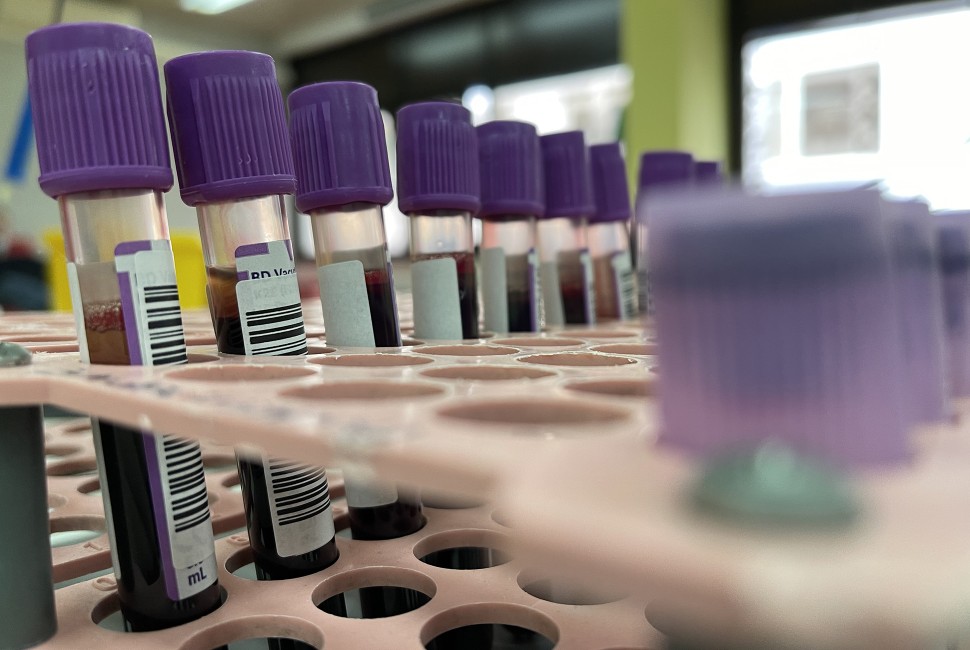The World Health Organization today declared an end to the mpox public health emergency. But just two days earlier, the Chicago Department of Public Health (CDPH) announced a potential resurgence of mpox (formerly monkeypox) in Chicago. Nine of the 13 cases (69%) reported to the CDPH between April 17 and May 5 were in men who were fully vaccinated for mpox.
Because May 11 marks the official end of the COVID-19 public health emergency and Chicago is preparing to enter busy spring and summer seasons, Northwestern University Feinberg School of Medicine infectious disease experts Dr. Alexandre Carvalho, Judd Hultquist, Ph.D., Dr. Karen Krueger and Dr. Valentina Stosor said now is the right time to encourage Chicagoans to take precautions.
“Clearly, this gives us pause that vaccine immunity may not be lasting long in some patients despite full vaccination,” said Carvalho, an infectious diseases fellow at Northwestern. “People will likely let their guards down in this first post-pandemic summer, go out to meet others, have fun. However, with the virus circulating, we must encourage people to take precautions and practice safe sex.”
Mpox is spread by direct contact with lesions on the skin or mucosal surfaces or by direct contact with bodily fluids containing the virus, such as blood, saliva or semen. Most transmission events have been linked to intimate sexual contact and, while it is not exclusive to men who have sex with men (MSM), transmission continues to disproportionately affect the MSM community.
“With any public health crisis, you want to be one step ahead, not one step behind,” Carvalho said.
How pox viruses evolve
The emergence of mpox in fully vaccinated individuals has raised concerns of weakening immunity and/or the evolution of immune evasion in the virus.
“Pox viruses evolve on a much slower time scale than many other viruses, such as SARS-CoV-2 or HIV, but all viruses mutate and change in the human population,” said Hultquist, Ph.D., assistant professor of infectious diseases at Feinberg and associate director of Northwestern’s Center for Pathogen Genomics and Microbial Evolution. “Efforts are ongoing to figure out if the mpox virus responsible for this recent resurgence is different than what was circulating last year.”
CDPH recommends the mpox vaccine series (two doses) for unvaccinated, eligible and at-risk groups for prevention of mpox. Although a booster is not yet recommended, this outbreak in fully vaccinated MSM elevates this discussion to a priority for 2023, the experts said.
“Exposed patients may develop body aches, fever, chills and a rash with umbilicated lesions affecting the skin, genitals and rectum that may ulcerate, with some lesions tender to the touch,” said Stosor, a professor of medicine at Northwestern’s infectious diseases division. “The disease can affect eyes, mucosa and other organs, ranging from mild to severe. Deaths are unusual but have been described in severely immunosuppressed patients."
For anyone infected with mpox
“If you believe you’ve become infected with mpox, it is important to try to limit the spread to others by wearing a mask and isolating at home until the rash is fully healed,” Stosor said. “It is important to contact your health care provider for medical evaluation.”
“There is an antiviral medication called Tecovirimat that is currently under investigation for the treatment of mpox,” said Krueger, assistant professor of infectious diseases at Northwestern. “Tecovirimat can be obtained through participation in a clinical trial or through emergency use access at participating clinics. The Infectious Diseases Clinic at Northwestern Medicine is a participating site in the clinical trial evaluating its use. Jynneos is an approved vaccine for the prevention of mpox and is recommended for those at high risk, which is also available at select Northwestern Medicine sites.”


